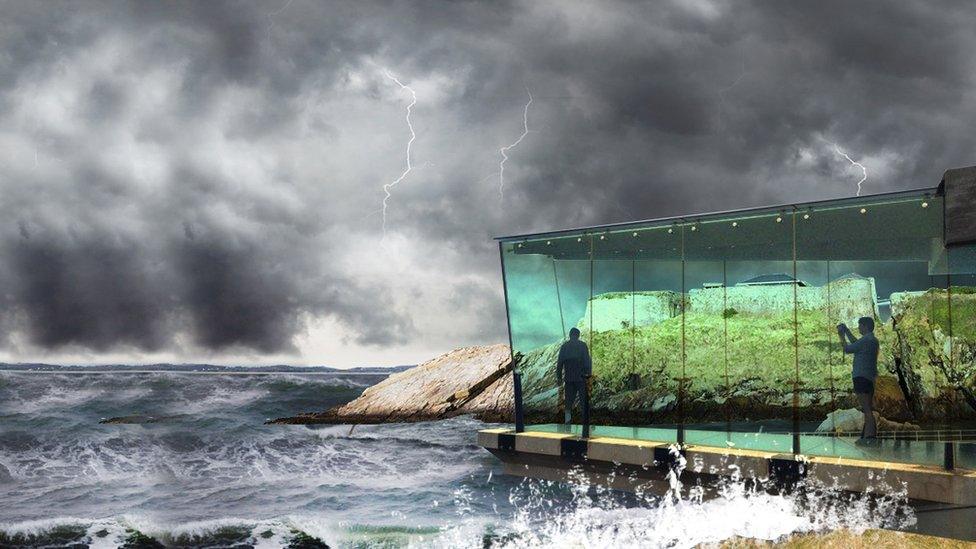Donegal: Dunree Fort set for 'transformational' development
- Published

The plans include a glass walkway on the Donegal coastline.
A Napoleonic-era fort on Donegal's Atlantic coast is to undergo a of ā¬12.5m (Ā£10.7m) transformation as part of plans to develop world class tourist attractions in the Republic of Ireland.
The Dunree Fort proposals include a new glass walkway and Ireland's first funicular railway.
It's one of four projects to benefit from a ā¬73m (Ā£62.7m) tourism investment programme, led by FĆ”ilte Ireland.
The tourism body is investing ā¬9.3m (Ā£8m) in the Donegal project.
A funicular railway, the first in Ireland, will also be developed at the fort.
Joan Crawford, from FƔilte Ireland, described the plans for Dunree as "transformational".
The funicular railway - which is a carriage pulled by cables, usually used to go up and down steep hillsides - will be "quite thrilling in terms of a tourism development", she added.
"It's really all about encouraging more visitors, domestic and international. That's so important in terms of driving regional growth into north west," she told “óĻó“«Ć½ Radio Foyle.
It will create 12 jobs and support a further 550 locally, FƔilte Ireland said.
Fort Dunree on the Inishowen peninsula was one of the forts used to guard Lough Swilly, home to the British naval fleet, during WWI
Built in 1798 following the arrest of Wolfe Tone, one of the leaders of the United Irishmen, the fort was extended in the late 19th Century .
It provided protection to the British naval fleet, anchored in Lough Swilly, prior to World War One's Battle of Jutland.
Dunree was handed over to the Irish Free State in 1938.
Dunree sits on Donegal's Atlantic coast
The Donegal project is one of four large-scale tourism attractions announced on Thursday that are to benefit from the ā¬73million investment programme.
Attractions in Cavan, Dublin and Mayo are also being developed under the FƔilte Ireland scheme.
Westport House in Mayo will undergo a ā¬20m restoration, while a state-of-the-art flight simulator is being developed in north Dublin's This is Ireland attraction.
The project being funded at the Shannon Pot Discovery Centre and Cavan Burren Park, which educates visitors about the River Shannon, will include the installation of an elevated viewing platform.
FĆ”ilte Ireland is providing ā¬44.3m of the total investment, with further funding coming from public and private partnerships.
Tourism Minister Catherine Martin said the investment in tourism "is the most significant" undertaken in Ireland.
It is hoped the four projects will support 8,000 jobs and generate ā¬290m over the next ten years.